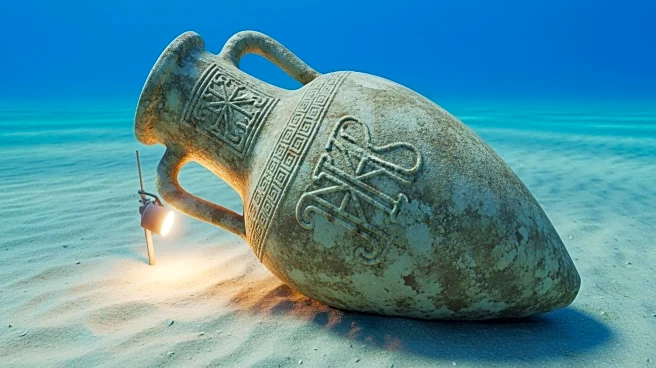What's Happening?
A Roman merchant shipwreck has been discovered off the coast of Mallorca, featuring containers with early Christian monograms and painted inscriptions known as tituli picti. These inscriptions list producers,
contents, and tax codes, providing valuable insights into the trade practices and religious influences of the time. The shipwreck is set to be extracted, offering archaeologists a unique opportunity to study the intersection of commerce and religion in ancient Roman society.
Why It's Important?
The discovery of Christian symbols on a Roman shipwreck highlights the spread of Christianity and its integration into various aspects of Roman life, including trade. This find provides evidence of the early presence of Christianity in the Mediterranean region, offering insights into the cultural and religious dynamics of the time. The extraction and study of the shipwreck could reveal new information about ancient trade routes, economic practices, and the role of religion in commerce.
What's Next?
The extraction of the shipwreck will allow researchers to analyze the artifacts and inscriptions in detail, potentially uncovering new information about ancient Roman trade and religious practices. The findings may lead to further studies on the spread of Christianity in the Mediterranean and its impact on Roman society. The project could also inspire similar archaeological endeavors in other regions, contributing to a broader understanding of ancient commerce and religion.
Beyond the Headlines
The discovery raises questions about the relationship between commerce and religion in ancient societies, highlighting the influence of religious beliefs on economic activities. It also underscores the importance of preserving underwater cultural heritage, prompting discussions about the ethical considerations of extracting and studying shipwrecks.











